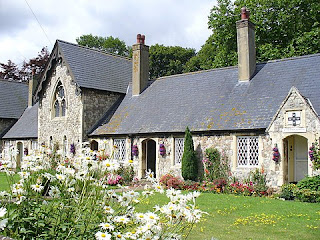The name Sondwic is mentioned first in the Anglo-Saxon Chronicle, covering events in England from the 800s to 1154. The Domesday Book, an account of all property in England so the new Norman rulers knew what they had, calls it Sandwice. The suffix -wic is Anglo-Sacon for a fortified place where trade takes place (a town). The name means a market town on sandy soil, appropriate for a coastal location.
When Rome invaded Britain in 43 CE, Sandwich was their landing point (technically, a town called Stonar across the river Stour from Sandwich, but Stonar disappeared in the 14th century).
King Cnut (c.990 - 1035) had history with Sandwich, initially leaving a pile of bodies strewn across the beach when he fled to Denmark after fighting with King Æthelred the Unready, but then later giving special rights to the church at Sandwich.
When Richard Lionheart was released from captivity after the Third Crusade and returned to England, Sandwich was his choice of landing port.
During the First Barons War (mentioned here) against King John, Prince Louis (later King Louis VIII) of France landed at sandwich to support the barons against John. The Battle of Sandwich was part of the First Barons War, and had the participation of Eustace, the Pirate Monk.
In the 14th century, a hospital (an almshouse for the poor) was established, named for St. Thomas Becket and still standing (see illustration).
In 1660, an earldom was created to bestow on Admiral Sir Edward Montagu. The 4th Earl of Sandwich was First Lord of the Admiralty and sponsored the voyages of Captain Jame Cook, who named the Sandwich islands for the Earl. The 4th Earl, John Montagu, is also credited with the naming of a food item when asking for meat between two pieces of bread so that he would not have to stop his activities. It bears mentioning, however, that a 1st century CE rabbi, Hillel the Elder, put the lamb and bitter herbs of the Seder between two pieces of matzoh, so this concept predates Montage by several centuries. (I doubt, however, that you'd get anything but blank stares of you ask for a "roast beef hillel" next time you want lunch.)
In a more serious vein: once again, I find a gap in my reporting: although King Cnut has had several references in this blog going back over a decade, he himself has not had his story told. Stay tuned.

